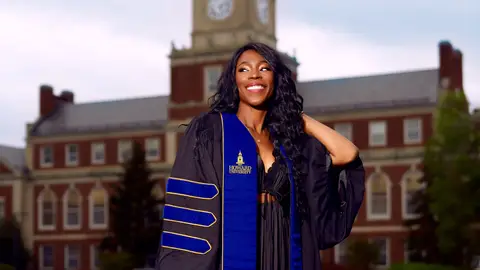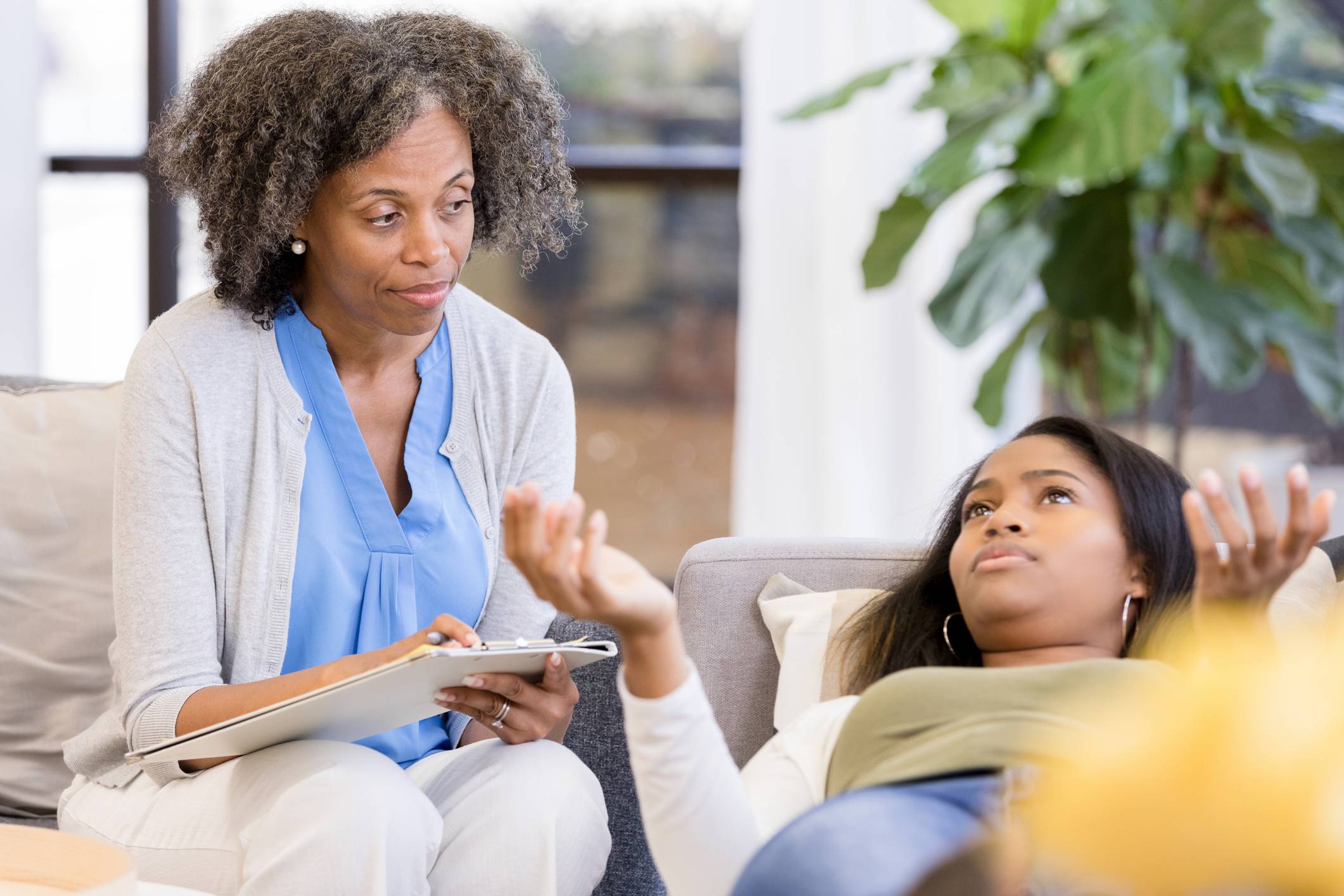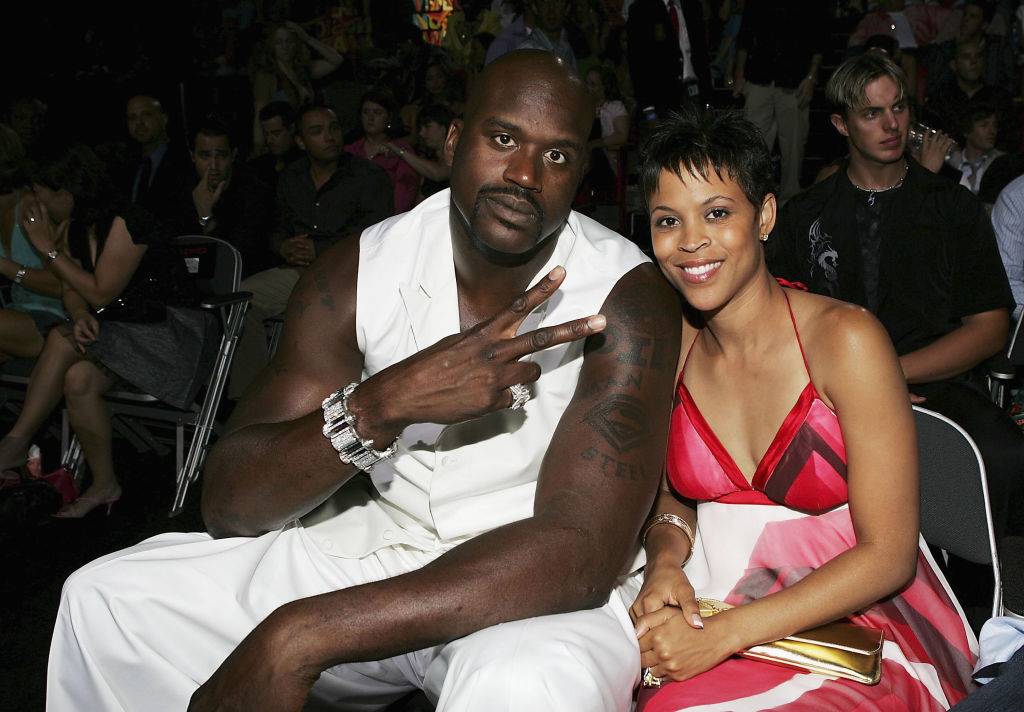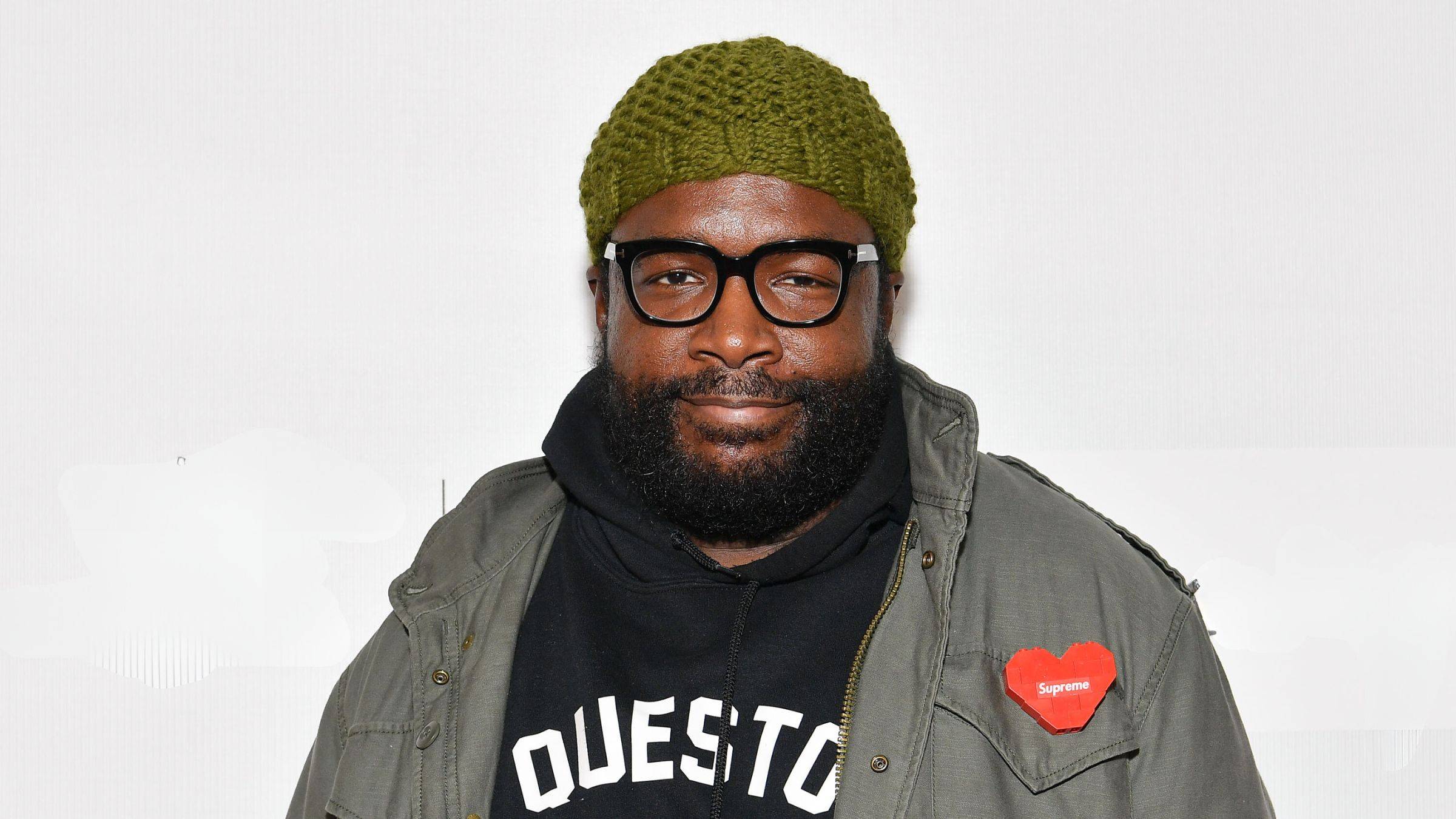Karyn Onyeneho Is a Maverick for Change in the Field of Human Genetics

When Karyn Onyeneho was 31 years old, her grandmother Caroline passed away. Her death was premature, and the doctors said it was from type 2 diabetes complications. A naturally inquisitive and compassionate person, Onyeneho researched the disease to learn more about it. She questioned the loss and wanted to find out how she could prevent the rest of her family from falling victim to the same disease.
Starting even before her grandmother’s passing, Onyeneho has spent two decades in a persistent search for advancements in the field of human genetics and experimental nutrition. She got her BS in health sciences and management from Howard University, her MS in health informatics from George Mason University, and recently received her PhD in nutritional sciences from Howard. She is the first in her family to become a doctor.
“It felt surreal,” Onyeneho says of this accomplishment. “I felt an enormous amount of responsibility that I have sort of to, not just be a role model, but to ensure that I’m a role model to the next generation. This is my blood, like my cousins. They can actually touch and feel and see that I’m real, that something that was not typically said to be plausible actually came into fruition for me. And that they too can obtain any dream that they have.”
While she was born in the United States with the rest of her siblings, Onyeneho continues to hold a strong connection to her ancestral home, Nigeria. These roots have kept her grounded in family and community, keeping her resilient in the fight against malnutrition and unhealthy eating habits.
Onyeneho’s passion for this work is represented in her website, Color of Genes. She created it with the hope of leaving a legacy in the field.
“It’s an educational website involving human genetics and research to help reduce preventable disease burdens, and if not, to increase our decision-making process when it comes to our health,” Onyeneho says. “If it doesn’t do that, hopefully, it increases our level of health literacy in some fashion.”
We spoke with Onyeneho, one of Glamour’s 2022 College Women of the Year, about unlearning poor eating habits, her favorite travel destination, and her commitment to combat malnutrition within her community.
Glamour: What’s your favorite thing about attending a historically Black college or university?
Karyn Onyeneho: The nurturing environment. You feel like it's family at the end of the day. You belong. You have an extra set of five moms, six more dads. You have a grandparent over here and an auntie over there. Everyone feels like they’re family.
What’s one of the hardest things you’ve had to unlearn?
How to not eat unhealthy—very simple things that you don’t realize that you’re doing, where you are minimizing or reducing the level of micronutrients that the body needs [that could be remedied] simply by eating raisins or consuming more green leafy vegetables.
Also, unlearning how to constantly say yes all the time. In other words, protecting my time. So now I’m working out, I’m eating healthy, and honestly, I’m an advocate for the very thing that I’ve gone to school to conduct research on, which is ensuring that we have optimal health, but I want to do that by being an example.
As an African woman, what was it like attending Howard, a majority Black American space?
I felt a sense of belonging. You have students and faculty in different departments who come from the same communities as me. One of my co-advisors, Dr. Priscilla Okunji, was really instrumental in my growth. She’s Nigerian and works in Howard University’s hospital as a nurse, but she’s also a faculty member. She took me in like I was her child. I felt that she was a second mom, but she was also a professor. I didn’t feel indifferent. I knew I belonged.
Talk to me about your website, Color of Genes.
I was working full-time for the National Institutes of Health while pursuing my PhD full-time. I got so impatient and a little bit annoyed that there were no resources available to help the public simply understand: What is human genetics? What is human genetics research? What is genetic testing? What is genetic counseling? How do we get rid of this jargon and talk in simple terms to the public to explain how these services can actually benefit your life and the lives of your family members optimally?
You don’t have to dig through this pile of jargon. We can connect you, not just to resources, but to genetic professionals that look like you. That’s another issue in health care or human genetics, where a lot of times—and this is not just my opinion; this is scientifically based—you trust sharing your health information or receiving health information from a health care professional that looks like you. They can understand your needs, whether it’s culturally, racially, or ancestrally.
Where is your favorite place that you’ve traveled to?
It has to be Gaborone, Botswana. I was there in 2018, and I was blown away. I was there for research in my second year at Howard University as a doctoral student. I was conducting research about malnutrition, and I wanted to understand the different incident rates of malnutrition in Botswana compared with the United States. While there, I got a chance to tour the country.
They welcomed us with dances. I mean, they were—I can’t even put it into words. We were welcomed by these beautiful people who will tell you they have nothing, yet they want to give you everything that they have. The journalist who was there—we’re still friends to this day. She literally welcomed me to her home and gave me her clothes to take back just because she wanted to pay respect that I visited their country. The food was incredible, but it was really the culture. Yet it’s sad because that was back in 2018, when the malnutrition rate was incredibly high, especially for children. And worldwide, 50% of children are still suffering from hunger. Unfortunately, they don’t have the technology we do here in the US.
You have three degrees in this field of nutrition and public health. What about this topic has kept you passionate and dedicated?
It started when I was at Howard as an undergrad when I learned about food deserts—that, wait a minute, based on someone’s zip code, you mean that they don’t have access to healthy food? Why is there a Whole Foods almost every five miles in this neighborhood of Montgomery County, Maryland? But when I go to this part of Prince George’s County, Maryland, I see McDonald’s. I see liquor stores. And to me that’s devastating.
Then inequities and inequalities are not just based on your zip code. Do you mean to tell me that people are treated differently in health care based on how they look, based on their skin color? My mom and dad were mocked because of their deep accent.
I realized what my passion and purpose were in life. To help people that can’t be helped or don’t have a voice or are afraid because they don’t have citizenship.
How do you unwind? Any TV shows you recently loved?
Squid Game on Netflix. The first time I watched it, I was like, “Wow, this is creative.” It tells a story about poverty, underrepresentation, struggle, marginalization—which are all things that I’m very passionate about in my fight for health equality or equity.
It told the story of people who are considered less than others and how they would do anything in order to get out of their debt. It reminded me of my entire academic and career path, and how I’ve always sought to help others. I’m literally a diversity, equity, and inclusion junkie. And so when I learned the background, I literally watched it again.
What’s next for you?
I hope to be the change that I want to see. I really just want to be a leader and a maverick for change. Whether it be in my current profession at the National Institute of Health or scaling my website, Color of Genes. I truly want to be a change agent in my space—on a macro level is STEM, but at the micro level is human genetics research.





